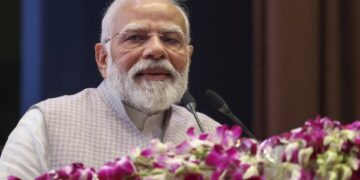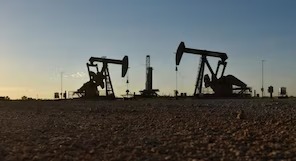Davos: The World Economic Forum’s Chief Economists Outlook report on Monday warned of dire human consequences from the fragmentation of the global economy and said that developing economies face trade-offs between the risks of debt crisis and securing food and fuel.
While inflation expectations are highest in the US, followed by Europe and Latin America, further declines in real wages are predicted in both high- and low-income economies.
Further, the report flagged that the world is facing the worst food insecurity in recent history – especially in the Middle East and North Africa, Sub-Saharan Africa and South Asia.
Multinationals are re-aligning supply chains along geopolitical fault lines, risking a new economic iron curtain and further price spirals, it added.
Releasing their outlook at the WEF Annual Meeting 2022 here, the World Economic Forum’s Community of Chief Economists said it expected lower economic activity, higher inflation, lower real wages and greater food insecurity globally in 2022, pointing to the devastating human consequences of the fragmentation of the global economy.
Reversing previous expectations for recovery, the majority of respondents in the latest survey expect only a moderate economic outlook in the United States, China, Latin America, South Asia and Pacific, East Asia, sub-Saharan Africa and the Middle East and North Africa in 2022. In Europe, the majority expects the economic outlook to be weak.
The choices of both business and government are expected to lead to greater fragmentation in the global economy and unprecedented shifts in supply chains, creating a perfect storm of volatility and uncertainty.
These patterns are expected to create further difficult trade-offs and choices for policy-makers, and – without greater coordination – shocking human costs.
“We are at the cusp of a vicious cycle that could impact societies for years. The pandemic and war in Ukraine have fragmented the global economy and created far-reaching consequences that risk wiping out the gains of the last 30 years,” WEF Managing Director Saadia Zahidi said.
“Leaders face difficult choices and trade-offs domestically when it comes to debt, inflation and investment. Yet business and government leaders must also recognise the absolute necessity of global cooperation to prevent economic misery and hunger for millions around the world,” she added.
The war in Ukraine, continued surges of COVID-19 variants and associated supply shocks are impacting expectations on inflation. The majority of chief economists surveyed by the Forum expect high or very high inflation in 2022 in all markets except China and East Asia.
In parallel, two-thirds of chief economists expect that average real wages will decline in the near term in advanced economies, while one-third are uncertain. Ninety per cent of those surveyed expect average real wages to fall across low-income economies.
With wheat prices expected to increase by over 40 per cent this year and prices for vegetable oils, cereals and meat at all-time highs, the war in Ukraine is exacerbating global hunger and a cost-of-living crisis.
Over the next three years, chief economists expect food insecurity to be most severe in sub-Saharan Africa and in the Middle East and North Africa. At the current trajectory, the world is on track for the worst food crisis in recent history, compounded by the additional pressure of high energy prices.
A recent 11-country survey, conducted by Ipsos with the World Economic Forum, also showed high levels of public economic pessimism in the face of a cost-of-living crisis.
With the World Bank expecting energy prices to rise by more than 50 per cent in 2022, before easing in 2023-24, policymakers are faced with balancing the risks of energy insecurity against the transition to greener energy.
Most chief economists surveyed expect policymakers to try and tackle both challenges simultaneously.
However, a clear majority of respondents expected a prioritisation of energy security based on carbon-intensive sources rather than greener sources across all regions except Europe and China.






